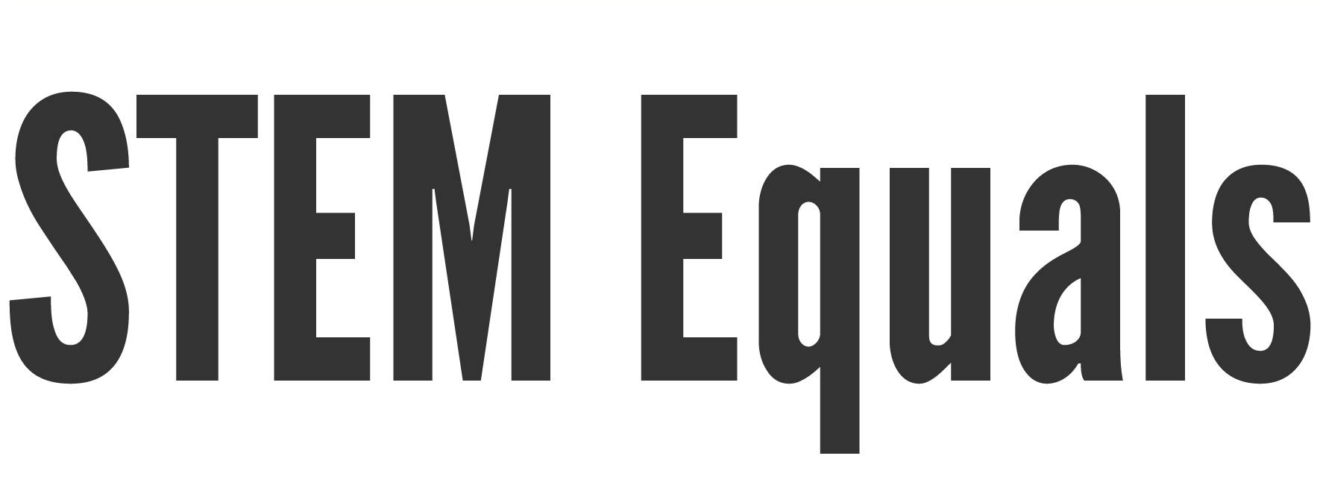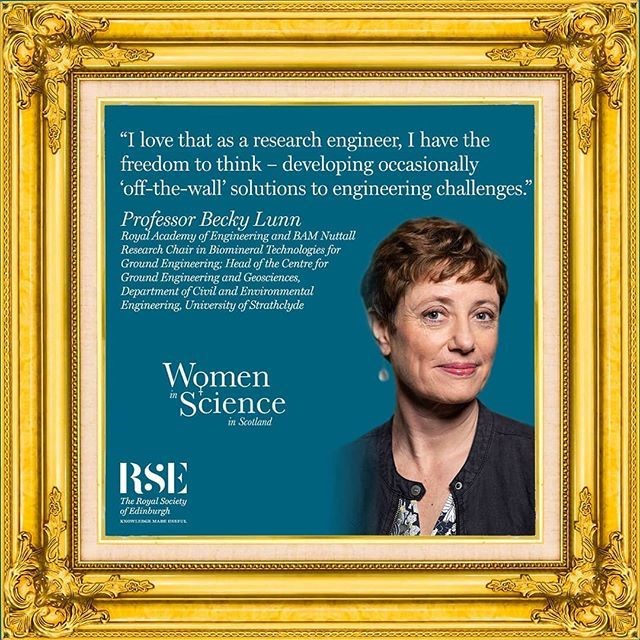The STEM Equals Project Asks: What does it mean to be seen?

On 1st June 2019, Jiwandeep Kohli tweeted a selfie and it went viral, with over 21,000 retweets and 152,000 likes and counting. Former US President Barack Obama quote-tweeted the original, garnering another 86,000 retweets and 581,000 more likes. His tweet inspired many, many national and international news headlines1234 . Wearing a turban with the pride flag rainbow colours, the message in Jiwandeep’s tweet was simple and profound:
“I’m proud to be a bisexual bearded baking brain scientist. I feel fortunate to be able to express all these aspects of my identity, and will continue to work toward ensuring the same freedom for others. #PrideMonth #PrideTurban #LoveIsLove“
For Jiwandeep, being a scientist is just one part of who he is. Even before his viral tweet, he was featured amongst the profiles on the #500QueerScientists website5 and Twitter6. As Jiwandeep’s tweet makes clear, his sexuality, his religion, his love of baking, and his expertise on the brain are all important parts of him. All of his identities matter.
However, are STEM disciplines welcoming spaces for everyone to bring all of their identities, their whole selves into the classrooms, into the labs, or out into the fields?
An enduring pattern of exclusion and discrimination
Exclusion and discrimination of underrepresented groups within STEM disciplines is a systemic problem well documented through research. A number of recent articles detail the inequalities that LGBT STEM academics face78910. A longitudinal study conducted in the US indicated that LGBT students interested in STEM were significantly less likely to persist within their chosen STEM disciplines than their heterosexual peers1112. In the UK, a June 2019 report titled Exploring the workplace for LGBT+ physical scientists, published jointly by the Institute of Physics, Royal Astronomical Society and Royal Society of Chemistry, reported findings that ‘28% of LGBT+ respondents stated that they had at some point considered leaving their workplace because of the climate or discrimination’ and ‘Nearly half of all those who said they were trans had considered leaving their workplace because of the climate’13. Amongst the report’s conclusions was the need for more welcoming STEM communities and increased visibility for LGBT+ staff:
Support for LGBT+ staff needs to be visible and not just in place on paper. Senior leaders and managers should proactively act as champions and advocates by speaking out about LGBT+ issues. Everyone should be able to bring their whole selves to work.
There is also a long list of literature suggesting that women and ethnic minorities face systemic inequalities14, for example, the ethnicity pay gap15, the gender pay gap16, the motherhood penalty17 (even for those who do not have or never will have children), gender and racial biases in teaching evaluations1819, lack of racial/ethnic diversity on research council boards20, and racial and gender biases in research grant funding2122, for which a report last year revealed that ‘90% of engineering and physical sciences funding in UK goes to male-led projects’.
Women in STEM, especially minority/ethnic women, face particularly persistent inequalities23, for example, in a randomized double-blind study in which identical applications had been randomly assigned a male or female name. ‘Participants rated the male applicant as significantly more competent and hireable than the (identical) female applicant. They also offered a higher starting salary and more career mentoring to the male’ 24.
‘All aspects of my identity’: What does it mean to be seen?
Even so, the STEM community is changing. In June 2019, the Institute of Engineering and Technology shared a powerful video titled #IAmAnEngineer celebrating the many diverse identities of engineers25. Pride in STEM shared an excellent video featuring diverse STEM voices across the globe, titled: ‘What changes do you want to see in STEM?’26
During the second annual international #LGBTSTEMDay this year on 5 July, one of Strathclyde’s own PhD students, Alex Blanchard, was featured amongst the profiles shared by the Glasgow Science Centre’s celebration tweets during the day. Like Jiwandeep, Alex is more than just a scientist; he is a gay, cisgender man who plays in a samba band, enjoys running, and is a self-confessed ‘prolific semi-colon user’. Profiles, like Alex’s and Jiwandeep’s, are helping to improve the visibility of LGBT+, women, and other unrepresented groups within the STEM community. But what exactly does it mean to be seen? How can visibility improve the experiences of underrepresented groups within STEM? And how can we build a more inclusive STEM community?
The STEM Equals Project at Strathclyde
The new STEM Equals project at the University of Strathclyde aims to explore and improve the experiences of women and LGBT academics in STEM disciplines, within the university and beyond27. Funded by EPSRC, with matched funding from the university, and with industry partner BAM Nuttall, the project will focus on research to understand the unique challenges and inequalities faced by women and LGBT academics in STEM and undertake initiatives to create more welcoming, inclusive STEM communities.
The project is led by Professor Rebecca Lunn OBE, recently profiled by the Royal Society Edinburgh (RSE) in the Women in Science Scotland exhibition28,29. You can catch the exhibit at the RSE until the end of September 2019, after which time the exhibit will be toured around Scotland, please see the RSE website for more details.

The STEM Equals project is just getting started. Our website www.stemequals.ac.uk will debut in October during an event to celebrate the launch of the project. We are planning to showcase STEM Equals profiles, weekly STEM Equals asks questions, monthly podcasts, a regular speaker series, conferences, social events and more.
For our first STEM Equals Asks, we want to hear from you! What are your suggestions for the STEM Equals project? For example: What events should STEM Equals organise? What topics should the STEM Equals podcast cover? What would make you want to get more involved?
Please join us to celebrate the launch of the STEM Equals project at the University of Strathclyde!
When: Monday 28th October, 3:30pm-5:30pm. Register for free here.
Want to know more or get involved? Email us at [email protected] or Follow us on Twitter @STEMEquals
This article was edited by Kirstin Leslie.
References
- www.newsweek.com/who-jiwandeep-kohli-barack-obama-rainbow-turban-pride-1442179
- www.pinknews.co.uk/2019/06/03/bisexual-sikh-brain-scientist-rainbow-pride-turban-viral
- https://edition.cnn.com/2019/06/05/us/obama-kohli-pride-tweet-trnd/index.html
- https://www.indiatoday.in/world/story/jiwandeep-kohli-rainbow-turban-barack-obama-twitter-1542944-2019-06-05
- www.500queerscientists.com/fullscreen-page/comp-jgwk54xq/ad94cffd-5489-4794-8395-5deb66fc0e3b/109/%3Fi%3D109%26p%3Dt0wwl%26s%3Dstyle-jidtaiw8
- https://twitter.com/500QueerSci/status/1083775875647062021
- https://blogs.scientificamerican.com/voices/how-to-fight-stems-unconscious-bias-against-lgbtq-people/
- https://wwwf.imperial.ac.uk/blog/imperial-medicine/2019/02/27/stem-needs-to-face-up-to-its-problem-with-lgbt-diversity/
- https://prideinstem.org/lgbtstem-day-2019-press-release/
- https://medium.com/oxford-university/lgbtstemday-2019-43f0b6aabc7b
- https://psmag.com/education/lgbt-students-stem-fields
- https://advances.sciencemag.org/content/4/3/eaao6373
- (p. 5) https://www.rsc.org/globalassets/04-campaigning-outreach/campaigning/lgbt-report/lgbt-report_web.pdf
- https://www.vice.com/en_us/article/8xvvya/study-finds-women-and-minorities-in-stem-are-discriminated-against-pew-research-center-tech-science
- https://www.theguardian.com/inequality/2019/jul/09/ethnic-pay-gap-bangladeshi-workers-earn-fifth-less-white-britons
- https://www.bbc.co.uk/news/business-47723950
- https://www.vice.com/en_ca/article/9kpvpv/womens-careers-suffer-a-motherhood-penaltyeven-if-they-dont-have-kids
- https://www.insidehighered.com/news/2019/05/20/fighting-gender-bias-student-evaluations-teaching-and-tenures-effect-instruction
- https://journals.plos.org/plosone/article?id=10.1371/journal.pone.0209749
- https://www.timeshighereducation.com/news/ukri-criticised-appointing-all-white-research-council-boards
- https://diversity.nih.gov/building-evidence/racial-disparities-nih-funding
- https://www.theguardian.com/education/2018/aug/10/female-scientists-urge-research-grants-reform-tackle-gender-bias
- https://www.asbmb.org/asbmbtoday/201401/WomenOfColor/
- (p. 16474) https://www.pnas.org/content/109/41/16474
- https://www.youtube.com/watch?v=M-JZuXnwl54&feature=youtu.be
- https://www.youtube.com/watch?v=7lJFuUaMfkI&feature=youtu.be
- https://www.glasgowcityofscienceandinnovation.com/news/1239-glasgow-universities-win-funding-for-equality-programmes
- https://www.youtube.com/watch?v=mo6uHwQAV0Y&feature=youtu.be
- https://www.rse.org.uk/women-science-exhibition/











1 Response
[…] with our supervisees, they still do not owe us (or our institutions) declarations, outness, or visibility for any of their identities. They are not obligated to declare them, and they are certainly […]